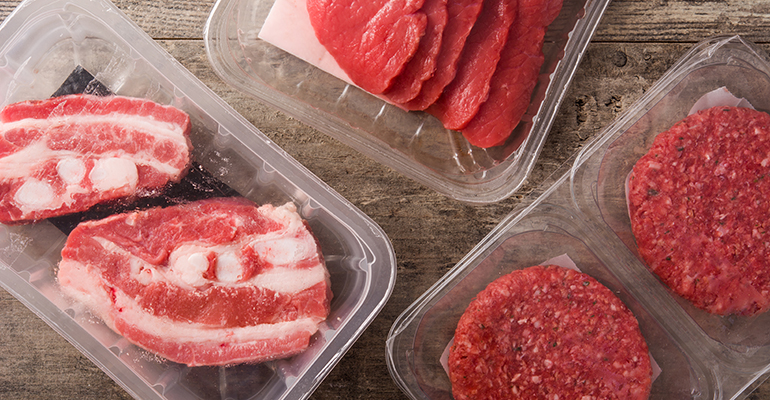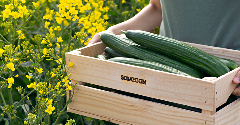News
White House gives $1B to combat inflated meat prices in the US
19 Jan 2022The U.S. White House announced in early January that it will contribute $1 billion in American Rescue Plan funding to independent meat processors in order to increase competition within the industry and lower protein prices. This plan includes $375 million in grants for new facility projects for small meatpackers, $275 million for loan assistance and $100 million to develop jobs with fair wages in rural areas.
“Over the last few decades, we’ve seen too many industries become dominated by a handful of large companies that control most of the business and most of the opportunities—raising prices and decreasing options for American families, while also squeezing out small businesses and entrepreneurs,” the White House said in a statement.

Currently, 85% of the beef market is controlled by four meatpacking companies; JBS USA Holdings and Tyson Foods alone are responsible for controlling 54% of the market. Poultry and pork are not much more democratic with the top four processing firms controlling 54% and 70% of the market respectively.
The monopolization of the protein industry has led to both increasing prices for producers and consumers, the White House said. “Fifty years ago, ranchers got over 60 cents of every dollar a consumer spent on beef, compared to about 39 cents today. Similarly, hog farmers got 40 to 60 cents on each dollar spent 50 years ago, down to about 19 cents today,” the government said in a statement. Not only are farmers’ wages shrinking, but the American public is experiencing the highest levels of inflation since 1982, which is dramatically affecting protein prices.
In November, overall food prices jumped a record 6.4% while meat, poultry, fish, eggs experienced an even steeper increase of 13%. Beef spiked extraordinarily with prices hiking 20% since a year prior, according to the Bureau of Labor Statistics. Data from the White House show meat and poultry prices are now the single largest contributor to the rising cost of food people consume at home.
While there is much support for this move to provide assistance to small meat producers, not all parties are in favor of government intervention. Industry group North American Meat Institute (NAMI) and Neil Bradley, the executive vice president and chief policy officer of the U.S. Chamber of Commerce took opposing views to this move, denouncing the infusion of cash as a misguided attempt to resolve the root of the inflation issue.
As part of this rescue funding, the White House also announced it will work with the Department of Justice and the Department of Agriculture to accelerate reporting of antitrust complaints. Last September, President Biden announced his plans to focus on the price-fixing accusations that have resulted in a multitude of lawsuits in recent years.
Related news

Soy story: WWF scores UK supermarkets on sustainability efforts
12 Nov 2025
WWF has published its latest “Soy Scorecard”, ranking UK supermarkets’ efforts to combat deforestation and land conversion in their soy supply chains.
Read more
Standing Ovation and Bel scale up casein production from dairy co-products
11 Nov 2025
Foodtech company Standing Ovation has partnered with cheese specialist Bel Group to manufacture dairy serums for industrial-scale casein production via precision fermentation.
Read more
New UPF standard hoped to offer consumers ‘coherence and clarity’
10 Nov 2025
Ingredients companies are being urged to enter “a new era of partnership and innovation” following the launch of the industry’s first non-UPF verification scheme.
Read more
Whistleblowers accuse UK meat industry of promoting cheap, unsustainable supply
7 Nov 2025
An anonymous group of industry insiders has accused the UK’s biggest food companies of systematically driving down meat quality and welfare standards.
Read more
Bord Bia presents Irish dairy ingredient suppliers at Fi Europe
6 Nov 2025
Dairygold Co-operative Society, The Carbery Group, and Ornua Co-operative: Meet with sustainable producers of Irish dairy ingredients at Food ingredients Europe 2025, Hall 7.2 Stand M18.
Read more
AI attraction means foodtech startups must ‘prove’ rather than ‘promise’
4 Nov 2025
Reports suggest that artificial intelligence (AI) is sucking investment from foodtech and agritech, but investors say the picture is complicated.
Read more
Penguin and Club bars no longer classed as chocolate
30 Oct 2025
Penguin and Club bars can no longer be classified as chocolate after the pladis-owned McVitie’s brands turned to cheaper alternatives amid the ongoing cocoa crisis.
Read more
Could plant-based protection replace plastic packaging?
29 Oct 2025
Swedish foodtech company Saveggy has launched an additive-free plant-based protection for cucumbers, offering a waste-free packaging solution for fruit and vegetables.
Read more
Does promoting protein content push up plant-based sales?
27 Oct 2025
Promoting the protein content of meat-free products is a more effective sales strategy than adding carbon labels, a study of UK bakery chain Greggs suggests.
Read more
Amazon Grocery launch aims to balance quality with affordability
22 Oct 2025
Global e-commerce giant Amazon has introduced a new private-label food brand, combining existing Amazon Fresh and Happy Belly products with new everyday items.
Read more